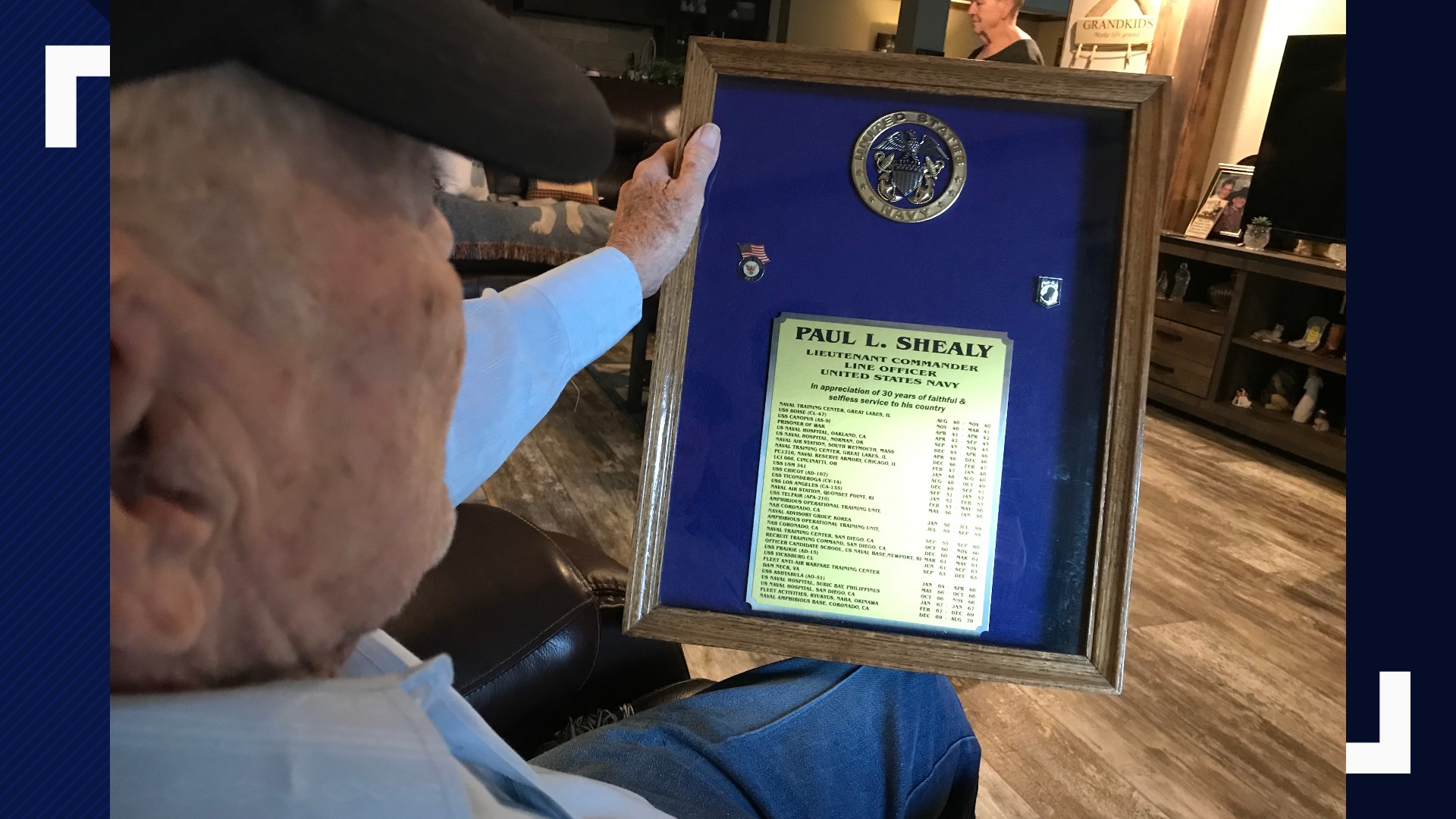MONTGOMERY, Texas — Paul Shealy is a 97-year-old World War II veteran and former prisoner of war.
"It wasn't bad," Shealy said recalling the beginning of World War II for him. "I don't know how you say it. It wasn't bad in the beginning."
Shealy was 17 years old when he joined the U.S. Navy, following the footsteps of his father who served in World War I. Although he didn't spend time fighting on the front lines, he had other jobs he took just as seriously while helping his comrades fight the Japanese at the Battle of Bataan.
"They took off our white uniforms and put them in coffee, dyed them coffee color so they'd blend in with the woods more or less," he said.
Shealy said while the work was hard at Bataan, it's the moments of comic relief that he cherishes and shares.
"One time, we were taking a blister back full up of water," he said. "This one guy had a shotgun, it went off and we all flanked right out and the water went everywhere and we had to go all the way back and get water and come back again. That was a long day."
The day Shealy was captured is ingrained in his memory.
"I think April the 6th sticks in my little mind," he said. "I was one of the unlucky ones and became a guest of the emperor."
He said his experience as a POW was rough, but the Japanese were still afraid of them. He was separated from other captured soldiers, no talking was allowed and they didn't get to go to the bathroom.
Shealy said the Japanese had a harsh punishment if anyone escaped.
"They invented a way of stopping us from escaping," he said. "If one man escaped, they'd shoot ten."
The prisoners' diet consisted of rice and worms, which was their only real source of protein.
Despite the harrowing conditions, Shealy said he never lost faith that he would make it home.
"Oh no, no, no," he said. "I never."
He also said he has no regrets from his military career, even in the three and a half years he spent as a POW. Shealy doesn't hold a grudge against the Japanese. In fact, he made deep friendships with many of them.
During his captivity, he realized how sweet freedom is.
"When you're interned or captured, life is miserable," he said. "Once you got out, it's over, you just don't know how free you are until that's over."
When Operation Desert Storm came around in the mid '90s, Shealy said he asked to serve again.
"They told me to go home, I was too old," he said. "And I said, 'Hey that's good, I'm gone. Call me ex lax because I'm moving out.'"
Nowadays, Shealy said he focuses on giving smiles to everyone he meets.
"That's the only way to do it," he said. "If you see someone without a smile, give 'em yours."
Other popular stories on KCENTV.com:

